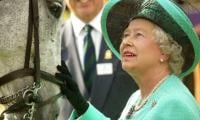Some of the staff at Elon Musk’s Neuralink are making preparations to sell the brain implant company’s stock in the wake of its valuation jumping following its first human trial, according to people familiar with the matter.
Stock compensation is a big incentive for employees at startups such as Neuralink. The shares they receive are not publicly traded, and employees that want to sell them without the company’s blessing have to use complex turnarounds on niche private market exchanges.
Now some of Neuralink’s employees and investors are preparing for Musk’s company to launch a tender offer as early as next month to buy back shares from staff that wish to sell, according to two sources briefed on the matter who requested anonymity because they were not authorized to speak publicly.
Neuralink and Musk did not respond to requests for comment.The jump in Neuralink’s valuation following the launch of its first human trial in January is evident in secondary market trades. While these trades are thin in volume and do not provide a reliable number for Neuralink’s current valuation, they all point to a rise in value -- some to as much as $8 billion, more than double what the company was worth last year.
Neuralink has called its first human trial a success. It said it remedied an initial problem of the implant’s threads retracting from its first patient’s brain and is preparing for more trials inBritain and Canada. Musk recently said the company plans to implant a second patient soon.
It could not be learned whether Neuralink has formally scheduled a tender offer or what its terms would be. Last fall, Neuralink launched a tender offer for employees that priced at around $19 per share, when some shares traded on the secondary market close to $35, according to a review of trades by Reuters and sources familiar with the matter. It is common for startups to launch tender offers at a discount to secondary market values.
Musk has for years created scarcity for shares in his startups, which also include rocket company SpaceX and artificial intelligence developer xAI, turning them into exclusive clubs that accept only a few investors, such as Peter Thiel’s Founders Fund.
China's President Xi Jinping applauds during the opening ceremony of the Forum on China-Africa Cooperation in...
This photograph shows the logo of US multinational technology conglomerate Meta, taken on May 22, 2022. —...
This is a representational image of a person holding gold chains. — AFP/FileKARACHI: Gold prices decreased by...
An employee working at a textile factory in Pakistan's port city of Karachi, on April 7, 2011. — AFPLAHORE: There is...
People shop at a crowded market ahead of Diwali, the Hindu festival of lights, in the old quarters of Delhi, India on...
Roblox Corp Chief Executive Officer and Co-Founder Dave Baszucki seen in this image. — X/@DavidBaszucki/FileRoblox...







